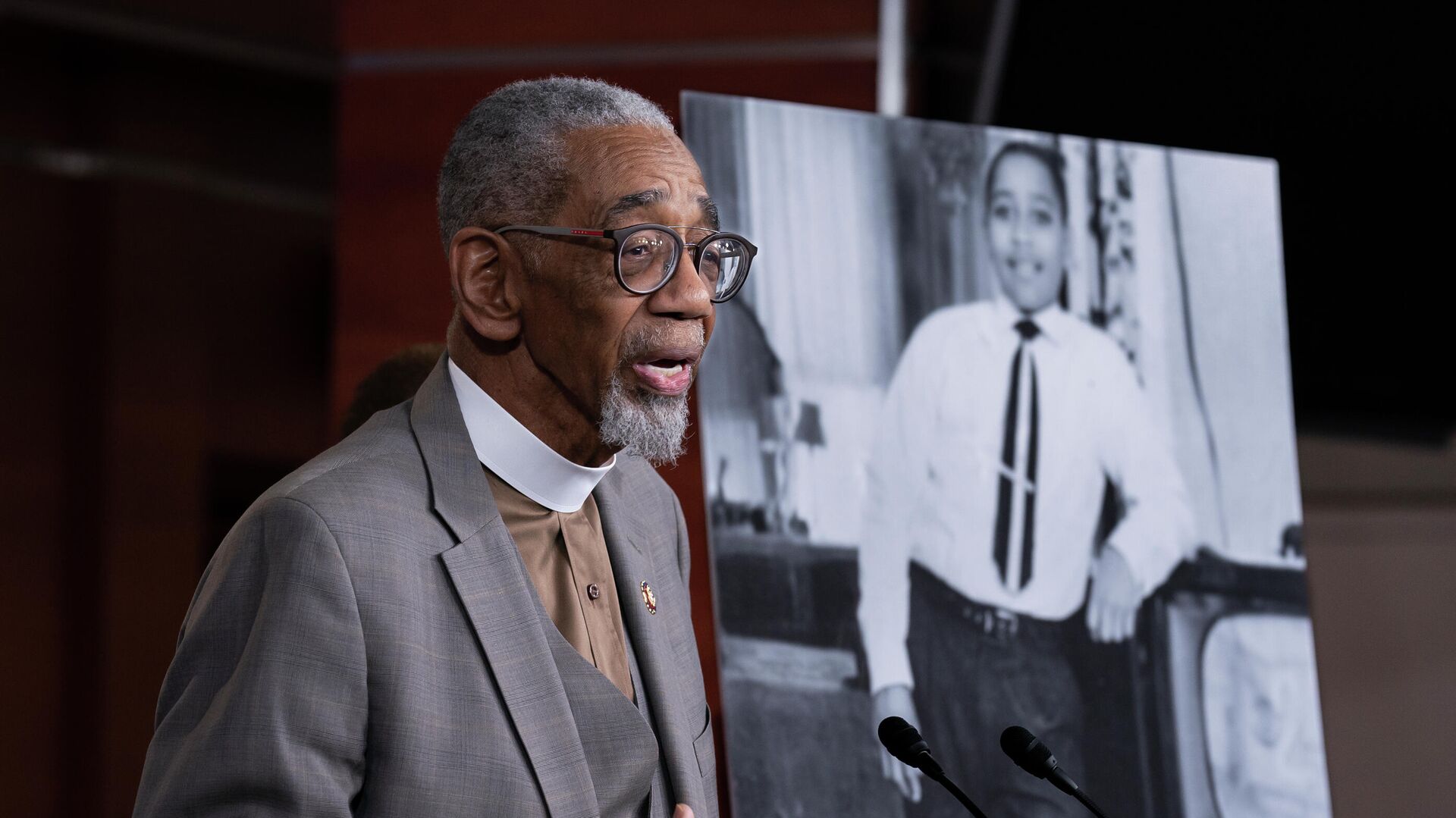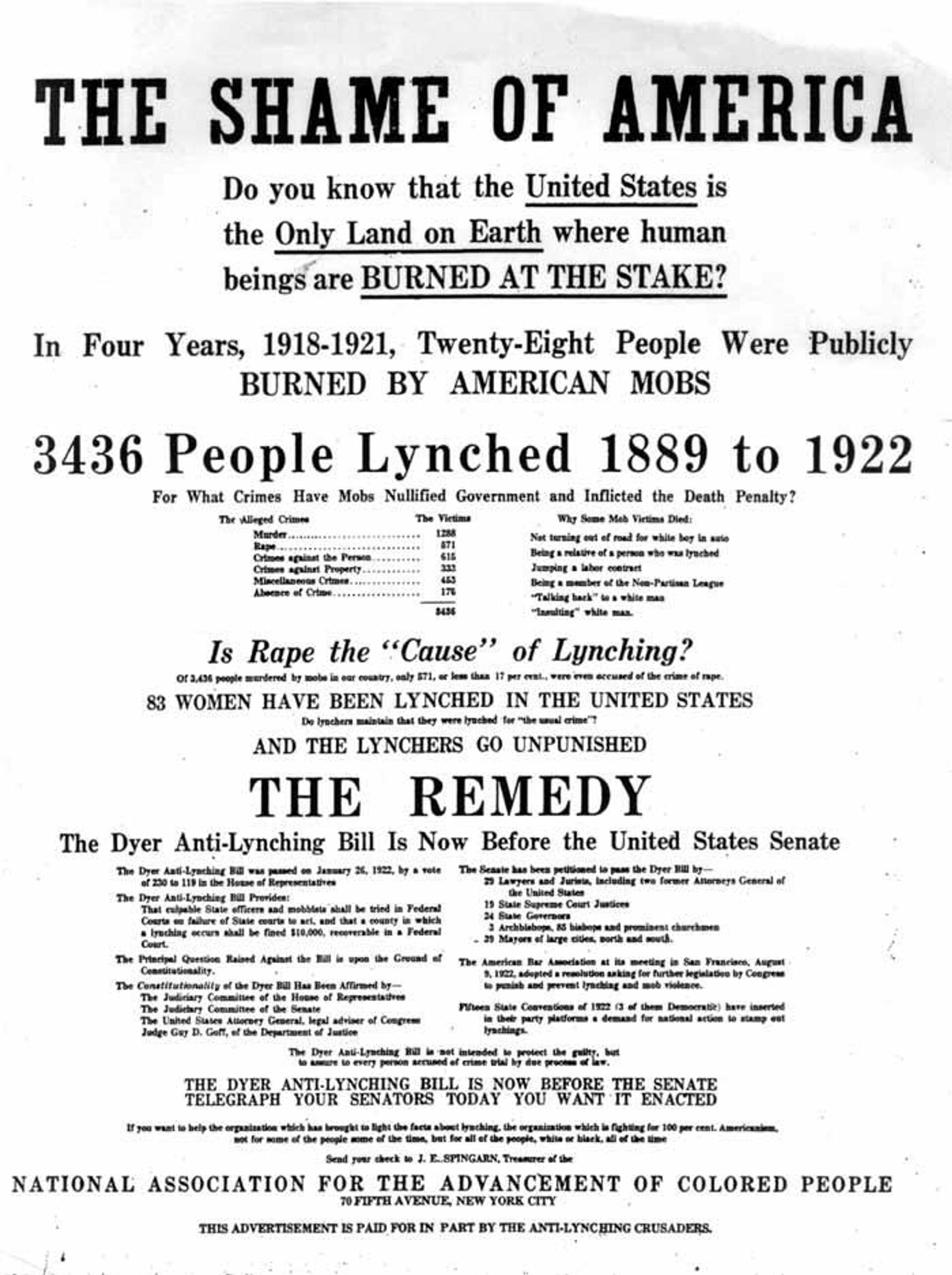Congress Sends Federal Anti-Lynching Bill to Biden After 122-Year-Long Fight
21:15 GMT 11.03.2022 (Updated: 16:30 GMT 08.12.2022)

© AP Photo / J. Scott Applewhite
Subscribe
Since the first anti-lynching bill was introduced in 1900, over 200 attempts have been made to pass a federal law designating the extrajudicial killing of Black Americans as a hate crime. The law was long opposed by Southern lawmakers, whose base of power was white supremacist Southerners who supported racial segregation.
On Monday, the US Senate unanimously voted to pass the Emmett Till Antilynching Act, named after a 14-year-old Black boy who in 1955 was tortured and murdered in Mississippi by a group of white men. Till’s brutal murder shocked the world and helped spark a mass movement that a decade later forced an end to formal racial apartheid in the United States informally known as the “Jim Crow” system.
A week earlier, the House passed it by a vote of 422-3; the three lawmakers who voted against it were Republican representatives Andrew Clyde (R-GA), Thomas Massie (R-KY), and Chip Roy (R-TX).
Rep. Bobby Rush (D-IL), a Black veteran of that bitter fight and the sponsor of the bill, said in a statement that lynching is “a long-standing and uniquely American weapon of racial terror that has for decades been used to maintain the white hierarchy.”
“Perpetrators of lynching got away with murder time and time again - in most cases, they were never even brought to trial. […] Today, we correct this historic and abhorrent injustice,” he said.
"Lynchings was America's first form of domestic terrorism," Dan Duster, the great-grandson of famed Black journalist Ida B. Wells, told ABC7 Chicago. Wells used her reporting to cast a spotlight on the often-ignored lynchings of Black Americans in the early 20th century.
Between 1882 and 1968, the National Association for the Advancement of Colored People (NAACP) recorded 4,743 lynchings in the United States. The group notes that other sources have reached different totals, due to the difficulty in tracking and verifying the killings. Many historians believe the reported tallies to be well below the true number of murders.
The vast majority of the killings happened in the American South, where white aristocrats staged an armed rebellion in the 1860s in defense of the legal enslavement of Black Americans, whose labor formed the basis of the cotton-export economy. After the rebellious Confederacy of states was defeated in 1865 and Congress banned private slavery, a brief attempt by radical Republicans to eradicate the legacy of inequality between Black and white Americans was curbed by a resurgent white supremacist movement, which reestablished an apartheid system that persisted until 1965.

During November, 1922, the NAACP ran this full-page advertisement in the New York Times and other newspapers, pressing for passage of the Dyer anti-lynching bill.
The NAACP’s count includes 3,446 Black victims and 1,297 white victims, who became the targets of white supremacists as a result of helping Black people or for taking a public stance against lynching and the Jim Crow system. Not counted in the tally are numerous other lynching victims across the country, including immigrants from Mexico and China, Native Americans, and LGBTQ people.
The first attempt to ban lynching was in 1900 in a bill introduced by Rep. George Henry White (R-NC), the last of more than a dozen Black congressmen who took office during the Reconstruction era. When he left office in 1901, there wasn’t a single sitting Black congressman until 1929. The bill was killed by the Judiciary Committee, despite a huge petition delivered by White that called for outlawing lynching and creating a “Central Detective Bureau” to record and investigate information in support of lynching prosecutions.
Another notable attempt came in 1918, when Missouri Republican Rep. Leonidas Dyer introduced a bill that was passed by the House but stalled in the Senate thanks to the filibuster rule, which conservatives successfully deployed for decades to block progressive legislation. Recent stonewalling of Biden’s political agenda by Republican senators has aroused calls to repeal the filibuster rule.
Between 1918 and 2022, more than 200 attempts to pass anti-lynching legislation were made, according to a count by the Associated Press.
The Emmett Till Antilynching Act, the purported final iteration of an anti-lynching bill, was first introduced in 2018. During the 2020 George Floyd protests, when millions of Americans poured into the streets to demand an end to anti-Black police violence and killings, as well as lynchings by vigilantes, progress on the bill was stalled by Sen. Rand Paul (R-KY), who claimed it was “overly broad,” demanding an amendment be added to ensure it "would apply the criminal penalties for lynching only and not for other crimes." The version passed this week contains Paul’s proposed changes, and the Republican Kentucky senator voted in favor of its passage.
